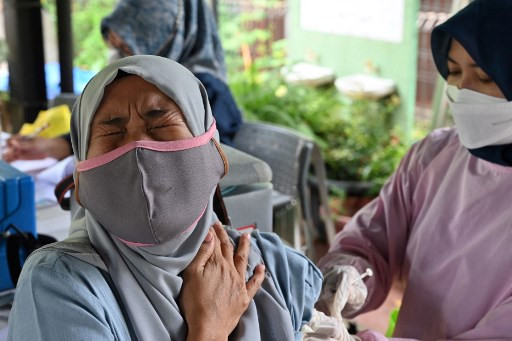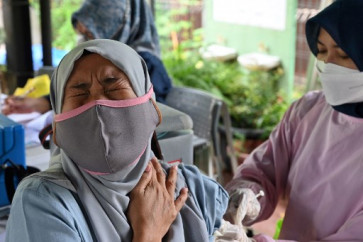Popular Reads
Top Results
Can't find what you're looking for?
View all search resultsPopular Reads
Top Results
Can't find what you're looking for?
View all search resultsThe 'three Kartinis': Pioneers of women’s health in Indonesia
Three female Indonesian physicians should be noted for their pioneering work in driving the country's progress in women's health, building on the legacy of national heroine R.A. Kartini, who tragically died from complications after childbirth.
Change text size
Gift Premium Articles
to Anyone
W
e commemorate Kartini Day every year on April 21 in remembrance of Raden Ajeng (R.A.) Kartini, the first Indonesian woman who showed a deep understanding of modern knowledge and expressed strong aspirations for equality and women’s rights.
Though Kartini did not see many of her ideas materialize in daily life over her short life (she died in her mid-20s after giving birth to her first child), her ideas transcended her brief life and she became the nation’s symbol of gender equality and women’s emancipation. Kartini opened doors and opportunities for many women in the country, such as in accessing modern education and engaging in public service.
Kartini’s legacy in facilitating women’s access to modern education, directly or indirectly, must be emphasized. Though she did not enjoy formal and structured modern schooling, let alone higher education, a few women managed to pursue and successfully complete their higher education not very long after her death.
It would not be surprising if medicine was the field these few women pursued and completed. The School of Medicine was among the institutions that the Dutch colonial government in the previous century decided to open to allow “pribumi”, or native Indonesians, to enroll; initially for men only, but later for women also.
The urgent need to improve the people’s health, including the health of workers at plantations, which was the primary interest of the colonial government and companies, formed the economic and political background to launching the School of Medicine, or Sekolah Dokter Djawa (Java medical school), which later became School tot Opleiding van Inlandsche Artsen (STOVIA) or training school for native doctors.
These institutions produced the first Indonesian medical doctors, many of who became not only health professionals but also nurturers of Indonesian nationalism. There are numerous books about these pioneering male doctors, but publications on the archipelago’s first female doctors are still limited.
Three early female physicians who were also pioneers of women’s health in Indonesia should be mentioned: Dr. Marie Thomas, Dr. Sulianti Saroso and Dr. Nafsiah Mboi. They are undoubtedly the “three Kartinis” in the very important field of women’s health.



















